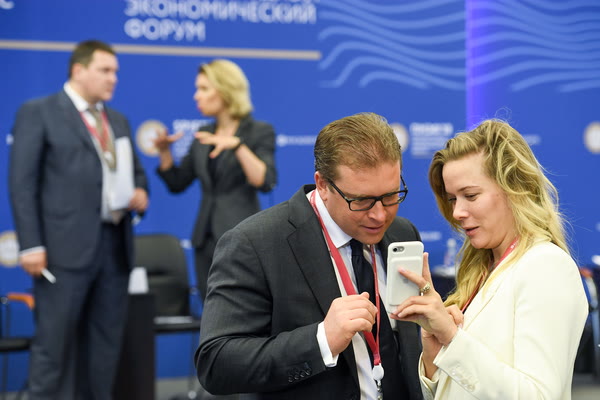
Issues concerning the financing of small business discussed on eve of SPIEF
On 23 May, the Russian Small & Medium-sized Enterprises Forum (one of several events held on the eve of SPIEF) hosted a panel session entitled ‘Always About the Money! Finance for Small and Medium-Sized Businesses’. The event, which included master-class elements, was moderated by Mikhail Mamuta, Head of the Service for Consumer Protection and Financial Inclusion at the Central Bank of the Russian Federation.
Mamuta noted that the Central Bank had significantly simplified the regulatory requirements for lending to SMEs, and has implemented special stimuli to make it more beneficial for banks to work specifically with small businesses. Per annum banking rates in this segment decreased by approximately 1.5%. Now, the average weighted interest rate for SMEs taking out loans for a period of over a year is 10.5%, Mamuta estimated.
However, despite the SME lending market demonstrating a few signs of growth, low access to finance remains one of the most pressing issues for small businesses. Speaking on behalf of the business community was Alexander Kalinin, President of OPORA RUSSIA. Kalinin claimed that currently, when businesses invest in development, they primarily use their own funds only. The main reasons for this is the prohibitively high cost of loans, and the fact that they are not sufficiently easy to access. In 2017, the credit portfolio for SMEs reached RUB 6.1 trillion. “If we want the small business segment to double by 2030, then its credit portfolio needs to be at least RUB 12 trillion. We are seeing good trends, but it is not enough to reach the figures specified in the decree issued by the President this month. The credit portfolio for SMEs must reach approximately RUB 16 trillion by 2030,” he summarized. Kalinin also expressed the view that lowering reserve requirements would be necessary.
Also taking part in the session were Konstantin Basmanov, Head of the Small and Medium Enterprises Unit at Promsvyazbank; Alexander Belokopytov, Director of Small Business Development at Sberbank;
Roman Kapinos, Deputy Chairman of the Board of SME Bank; Maxim Lubomudrov, Deputy General Director of the Russian Small and Medium Business Corporation; Gennadiy Margolit, Executive Director of the Innovation and Investment Market at the Moscow Exchange; Maksim Parshin, Director of the Department for Small and Medium-sized Business and Competition at the Ministry for Economic Development of the Russian Federation; Nadiya Cherkasova, Member of the Board and Head of Small and Medium-Sized Business at Otkritie Bank; and Konstantin Shabalin, General Director of Start Track.








